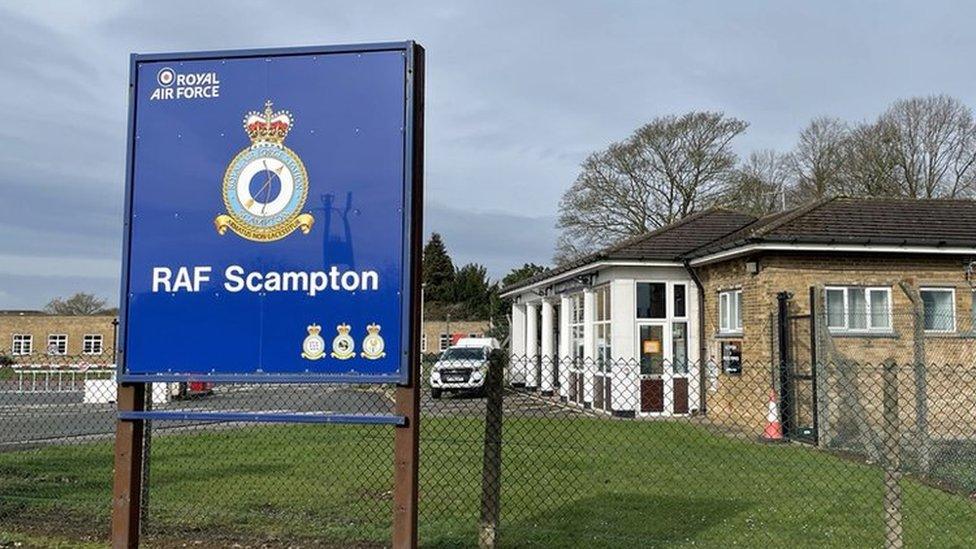RAF Scampton: Residents at planned migrant base feel 'forgotten'
- Published
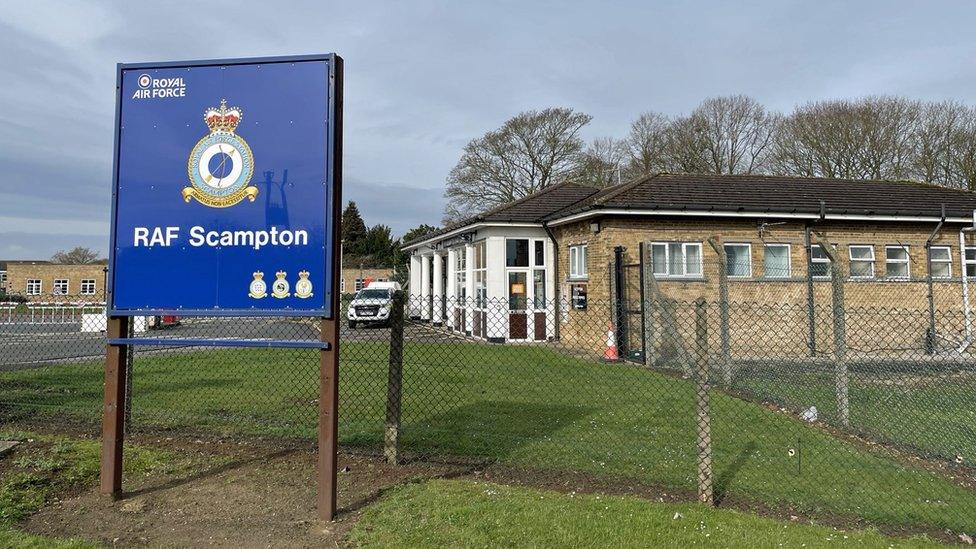
Up to 2,000 asylum seekers could be placed at the site in Lincolnshire, the government said
People who live near to a former Lincolnshire RAF site set to become a migrant camp have said they feel like they have been "forgotten".
The Home Office plans to convert RAF Scampton into a migrant camp for up to 2,000 asylum seekers.
The council recently lost a bid for an injunction against work to prepare the base for migrants.
A Home Office spokesperson said the government "understood the concerns of local communities".
Now people living in former military housing at the site have said they feel "in limbo".
About 700 people live close to the planned migrant camp in houses which were used as marriage quarters on the base.
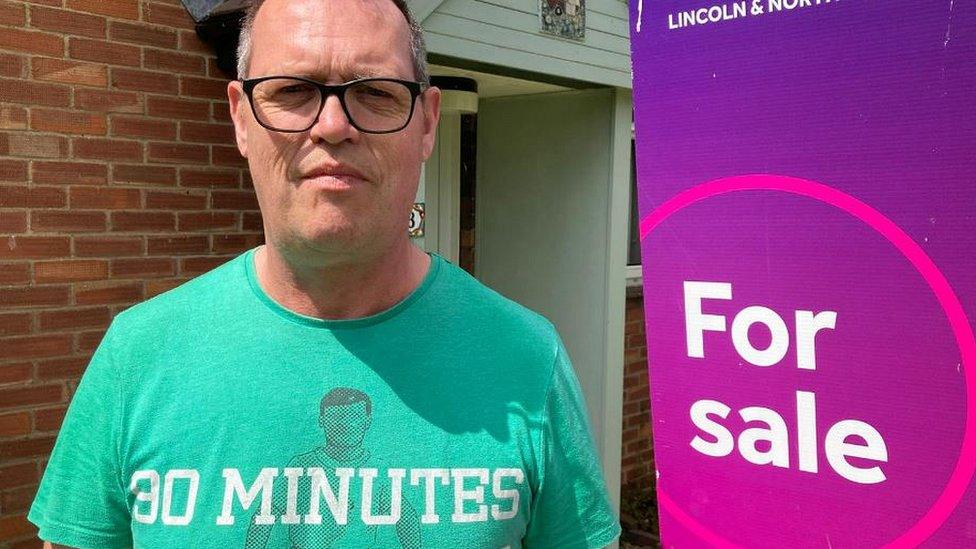
John Springthorpe said he was set to move house but news of the asylum centre had cost him a house sale
The estate was separated by a fence from the camp in the late 1990s and gradually the houses were sold to private owners.
One resident, John Springthorpe, said the migrant plan for the RAF base had cost him a house sale.
"Our boxes are still all packed and ready to go, but the sale fell through," he said.
"We're in limbo at the moment. We lost our bungalow that we had already signed for, they've moved on and the chain broke and that's it now."
Mr Springthorpe said: "Before the announcement we had loads of interest, but nobody has been around in the eight weeks since."
His neighbour, Allison Carter, said she feels those who live closest to the former base "have been forgotten".
Ms Carter said she believed she and other home owners "will literally be living side-by-side" the asylum seekers.
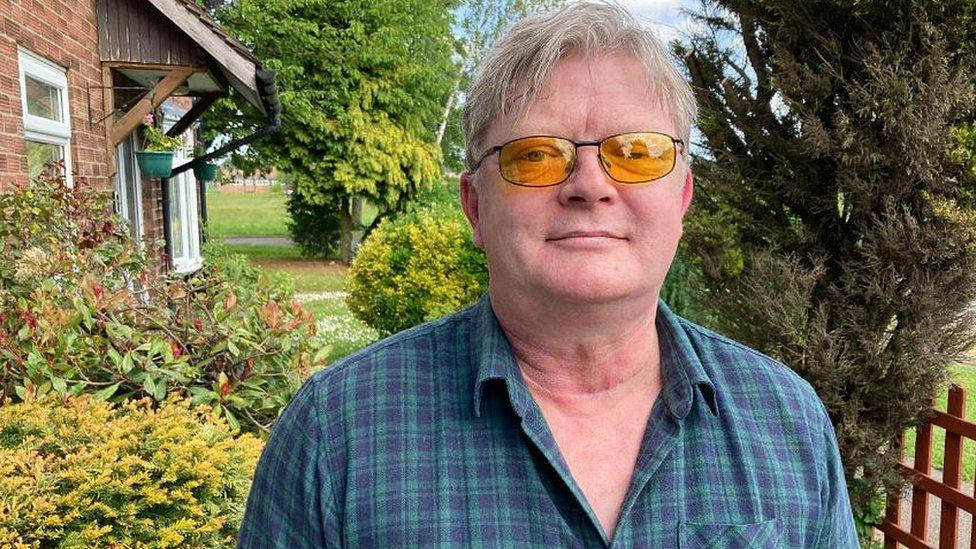
Jason Bayliss who lives near the planned asylum centre said he was "deeply concerned" over the plans for the former base
Jason Bayliss, who also lives near the camp, used to work with asylum seekers.
He said he was "deeply concerned" for everyone involved in the plan, "including the asylum seekers"
He added: "It feels like they want to take a very large group of young men, take them somewhere remote, where just by happenstance about 700 people live and go 'there you go'."
"And then we're left with it to cope with."
RAF Scampton was the former home of the Red Arrows and the World War Two Dambusters squadron.
A Home Office spokesperson said: "Delivering accommodation on large scale sites will provide cheaper and more suitable housing for those arriving in small boats, whilst helping to reduce the use of costly hotels.
"We understand the concerns of local communities and will work closely with key stakeholders to manage the impact of using these sites, including liaising with local police to make sure appropriate arrangements are in place.
"These sites are also more manageable for communities, due to healthcare and catering facilities on site, 24/7 security and the purpose built accommodation they provide."
West Lindsey District Council previously said the Home Office had confirmed that no asylum seekers would arrive at the site until after 3 July.

Follow BBC East Yorkshire and Lincolnshire on Facebook, external, Twitter, external, and Instagram, external. Send your story ideas to yorkslincs.news@bbc.co.uk, external.
- Published11 May 2023
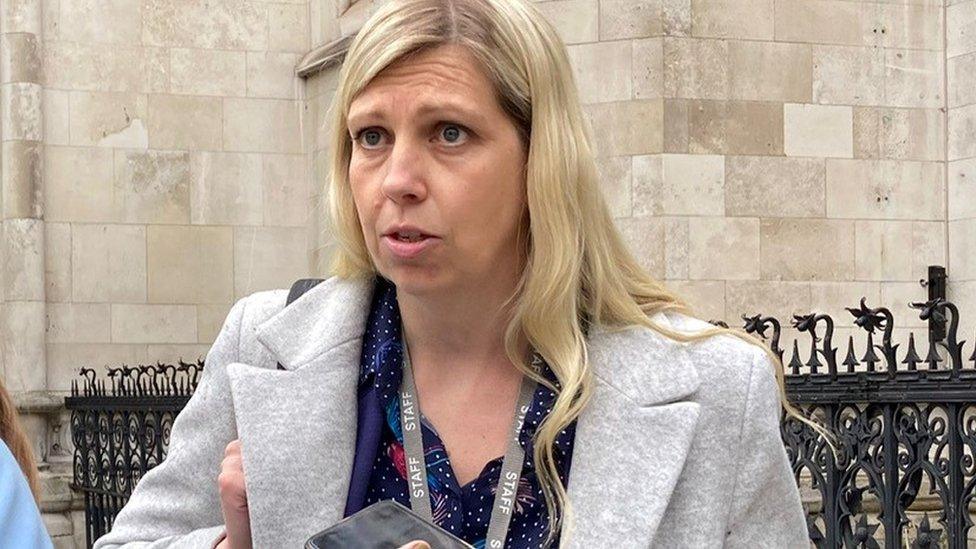
- Published2 April 2023

- Published1 April 2023
